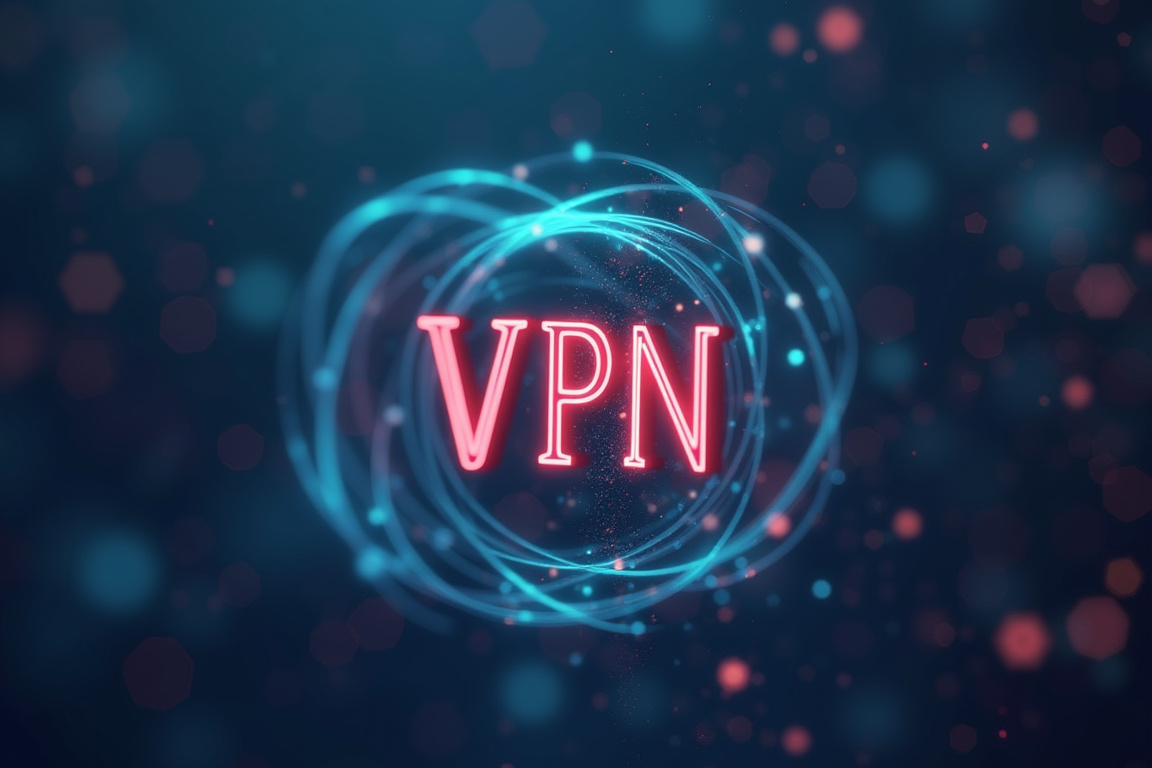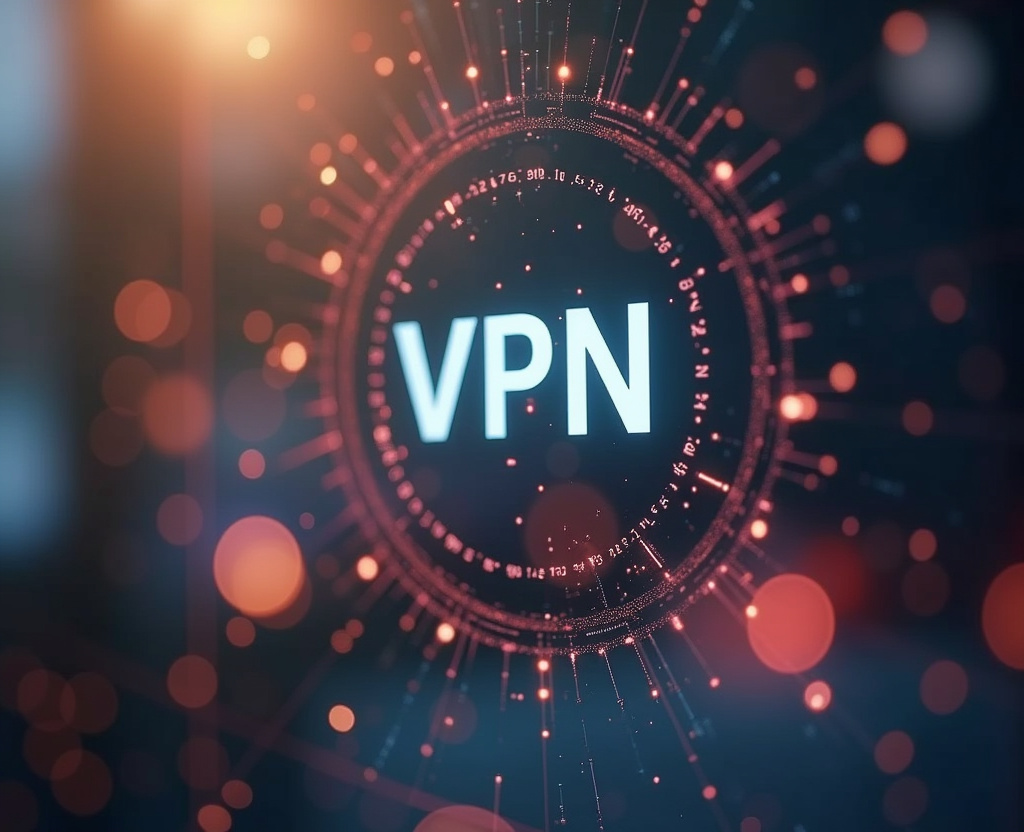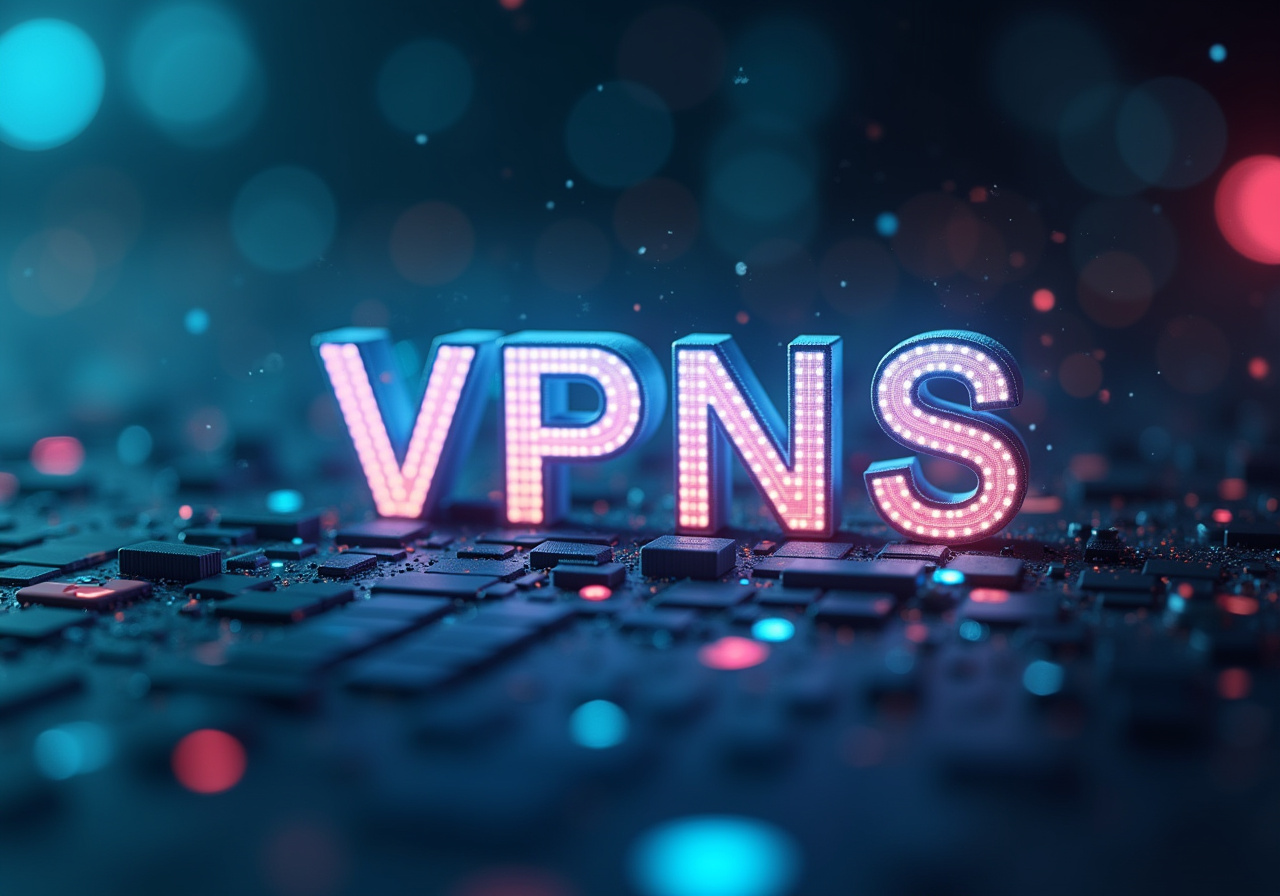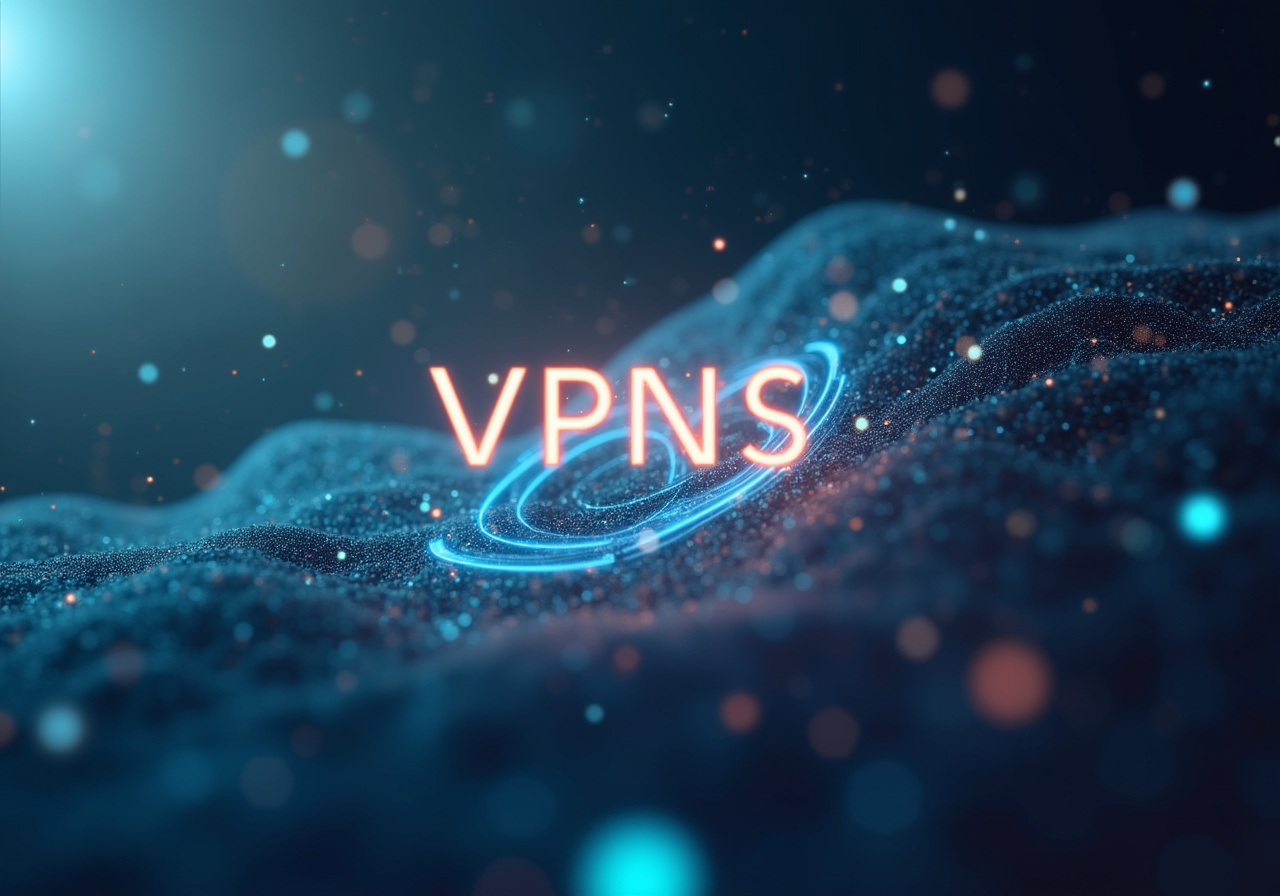Family-Friendly VPNs for Multiple Users

Table of Contents
family VPN
In today's digitally interconnected world, the internet has become an indispensable part of family life. From online education and entertainment to staying connected with loved ones and managing finances, families rely on the internet for a multitude of daily activities. However, this increasing reliance also exposes families to a growing range of online threats, including malware, phishing scams, identity theft, and privacy breaches.
Protecting your family's online activities is no longer a matter of convenience but a fundamental necessity. This article explores the critical role of a in establishing a secure and private online environment for every member of your household. A provides a comprehensive solution, enabling multiple devices to connect simultaneously through a single VPN account, ensuring consistent protection across all devices used by family members.
The fundamental benefit of utilizing a family-oriented VPN stems from the ability to create a experience by encrypting internet traffic, masking IP addresses, and bypassing geo-restrictions. This encryption safeguards sensitive data from prying eyes, while IP masking provides anonymity, and geo-restriction bypassing grants access to global content. It's an all-encompassing digital safety net for the modern family.
Protection of digital privacy involves much more than simply hiding your IP address. A robust VPN encrypts all internet traffic flowing to and from your devices, rendering it unreadable to any third parties attempting to intercept it. This encryption serves as a vital defense against hackers, government surveillance, and even your internet service provider (ISP) tracking your online behavior.
By preventing these entities from monitoring your online activities, a VPN ensures that your family's personal information and browsing habits remain private and confidential. With a dependable VPN in place, your family can enjoy without the constant concern that their online actions are being monitored, recorded, or exploited. This is particularly crucial for children and teenagers, who are often more vulnerable to online predators, cyberbullying, and exposure to inappropriate content.
By securing their online footprint, you protect your family's digital wellbeing and mitigate potential dangers. Choosing the right option for your family requires careful evaluation of several key factors. These factors include the number of devices that need simultaneous protection, the available server locations to ensure connectivity, and the robust nature of the security features offered by the VPN service.
Many families now own a multitude of devices that connect to the internet, ranging from smartphones and tablets to laptops, smart TVs, and gaming consoles. Ensuring that the VPN provider allows a sufficient number of concurrent connections is essential to accommodate all of these devices. Additionally, the geographic distribution of VPN servers plays a significant role in performance and accessing location-specific content.
Different VPN providers offer varying server locations, so choosing a provider with servers in regions that are relevant to your family's needs is important. For example, if you frequently travel abroad, you may need a VPN with servers in multiple countries to access content from your home region. Finally, prioritize security features such as strong encryption protocols (e.g., AES-256), a strict no-logs policy, and built-in protection against DNS leaks.
These features ensure that your family's online activities remain private and secure at all times. Employing a reliable family VPN is a proactive step toward fostering responsible digital citizenship within your family. It instills good cybersecurity habits, promotes awareness of online risks, and empowers family members to navigate the digital world safely and confidently.
In addition to providing direct security benefits, a VPN can also serve as a valuable teaching tool, sparking conversations about online privacy, data security, and responsible internet usage.
family VPN
Beyond providing a foundational layer of security, a can also offer substantial benefits in terms of parental control and content filtering. While a VPN's primary function is encryption and anonymization, some providers offer features that seamlessly integrate with parental control software, enhancing your ability to set up a environment. This expanded functionality allows parents to effectively manage their children's online activities, setting robust safety parameters within the home network.
These controls can include blocking access to inappropriate websites, limiting screen time, monitoring browsing history, and even filtering specific types of content. Effectively families gain the dual advantages of encrypted security and active parental oversight, creating a secure and controlled online environment that is specifically tailored to the safety of children. A can also assist families in circumventing geo-restrictions and unlocking content across different regions.
For example, consider a scenario where you're traveling abroad and you want to keep up with your favorite television programs on a streaming service that is only available in your home country. A VPN allows you to connect to a server in your home country, enabling you to access content as if you were physically located there. Similarly, a VPN can bypass restrictions on services or websites blocked in your region, granting access to resources you might otherwise be unable to reach.
This is particularly beneficial for families seeking access to diverse educational materials or a broader scope of entertainment options that aren't normally available in their local area. Selecting a VPN with an expansive array of server locations becomes indispensable for maximizing this benefit and ensuring unrestricted access to global online content. A secure and enjoyable internet experience requires not only access but consistent performance.
To create a genuinely experience, you must choose a VPN service that delivers reliable and stable connections. Constant disconnections and sluggish speeds can severely disrupt browsing and streaming activities, undermining the benefits of the VPN. A quality VPN provider typically operates a strong network infrastructure, featuring multiple servers across various locations, guaranteeing access to a fast and dependable server at all times.
Choosing a provider should involve a thorough review of user reviews and speed test results to confirm their service can effectively manage your family's bandwidth demands. Moreover, the quality of customer support provided by the VPN provider is an essential consideration. If you experience issues with the VPN connection or software, quick and accessible support is essential for restoring connectivity and addressing any technical challenges.
Seek out providers that offer 24/7 customer support through live chat, email, or telephone. Additionally, check the availability of a comprehensive knowledge base or FAQ section, which can provide solutions to common problems and guidance on using the VPN service. Excellent customer support can profoundly enhance user satisfaction and improve overall proficiency of the , especially for households with varying technical expertise within the family.
The capabilities, when augmented by a reliable VPN, can drastically improve your overall online experience by actively blocking invasive ads and trackers. Many VPN providers include integrated ad-blocking features and anti-tracking measures, thereby decreasing the number of disruptive advertisements encountered and restricting websites from tracking users’ browsing behavior. This enhancement not only creates less intrusive browsing experience but also shields privacy by obstructing companies from collecting user data on online activities.
These improvements enhance the attractiveness of the VPN, specifically for households wanting greater simplicity and less interruptions. Ensuring that your family benefits from dependable demands careful examination and balance of these key factors.
family VPN
Another crucial aspect of selecting the right is understanding the different VPN protocols available. VPN protocols are the underlying methods used to create a secure, encrypted tunnel between your device and the VPN server. These protocols dictate how your data is packaged, transmitted, and secured as it traverses the internet.
Different protocols offer varying trade-offs between speed, security, and compatibility, making the choice of protocol an important consideration. Some of the most common and widely used VPN protocols include OpenVPN, IKEv2/IPsec, WireGuard, and L2TP/IPsec. OpenVPN is widely regarded as one of the most secure and reliable VPN protocols currently available.
It is an open-source protocol, meaning that its code is publicly available for scrutiny and has been thoroughly vetted by security experts. OpenVPN offers strong encryption and flexible configuration options, making it a versatile choice for a wide range of devices and operating systems. While it may not always be the fastest protocol, OpenVPN is generally a good choice for families who prioritize security above all else when configuring a .
IKEv2/IPsec is another popular VPN protocol known for its speed and stability, particularly on mobile devices. It re-establishes connections quickly after interruptions, making it a suitable option for families who frequently use VPNs on smartphones and tablets. IKEv2/IPsec is also considered relatively secure, although it may not be quite as rigorously vetted as OpenVPN.
It is frequently the go-to choice for users wanting reliable on mobile and other wireless devices. WireGuard is a relatively new VPN protocol that has gained significant attention in recent years due to its speed, simplicity, and modern security features. WireGuard is designed to be more efficient than older protocols like OpenVPN, resulting in faster connection speeds and lower battery consumption.
It is also considered to be highly secure, utilizing state-of-the-art cryptography. However, because it is a newer protocol, it may not be as widely supported as OpenVPN or IKEv2/IPsec. However, its increasing adoption rate makes it a strong option for those focused on at higher speeds.
L2TP/IPsec is an older VPN protocol that is often pre-installed on many devices and operating systems. While it is relatively easy to set up, L2TP/IPsec is generally considered to be less secure than other protocols like OpenVPN and IKEv2/IPsec. It also tends to be slower and less reliable.
As a result, L2TP/IPsec is generally not recommended for families who prioritize security and performance. The most important aspect is ensuring that your supports multiple protocols, allowing you to choose the best option based on your specific needs and device. In addition to understanding VPN protocols, it is also important to be aware of the potential risks associated with using free VPN services.
While free VPNs may seem attractive, they often come with significant drawbacks. Many free VPN providers log user data, display intrusive ads, and even sell user bandwidth to third parties. Some free VPNs may also contain malware or other malicious software.
As a result, it is generally recommended to avoid free VPNs and opt for a reputable paid VPN provider. Paid VPN providers typically offer better security, faster speeds, and more reliable service than free VPNs. They also tend to have stricter privacy policies and are less likely to engage in shady practices.
Investing in a paid VPN is a small price to pay for protecting your family's online security and privacy. As a general rule, if you are considering a free VPN, it is crucial to carefully review its privacy policy and read user reviews to assess its trustworthiness.
family VPN
Beyond the technical aspects of VPN protocols and security features, another crucial consideration for a is the user-friendliness of the VPN software and apps. A VPN that is difficult to set up or use is unlikely to be adopted by all members of the family, defeating the purpose of providing comprehensive protection. Look for VPN providers that offer intuitive apps for all major operating systems, including Windows, macOS, iOS, Android, and even routers.
These apps should be easy to install, configure, and use, even for those who are not tech-savvy. The interface layout should be easy to navigate, providing clear options for connecting to different servers, configuring security settings, and accessing customer support. Ideally, enabling should be as simple as launching the app and clicking a button.
A user-friendly interface ensures that all family members, regardless of their technical expertise, can easily use the VPN to protect their online activities. Some VPN providers go a step further and offer features specifically designed to simplify the user experience for families. These features may include automatic connection options, which automatically connect to the VPN server whenever a device connects to the internet, and family profiles, which allow parents to configure different security settings for different family members.
These features can help to further streamline the VPN experience and make it easier for families to stay protected. The effectiveness of a is directly proportional to the ease with which each user can connect and maintain the connection. Furthermore, it's important to consider the VPN's performance across a range of different devices.
A VPN that performs well on a desktop computer could be sluggish on a mobile device, or vice versa. A good VPN provider will optimize its apps for different devices, ensuring that all users can enjoy fast and reliable performance. Before committing to a VPN provider, take advantage of any free trials or money-back guarantees that they offer.
This will allow you to test the VPN on all of your family's devices and ensure that it meets your needs in terms of performance, security, and user-friendliness. While ensuring a experience can be complex, it should also be manageable. Another important consideration is the VPN's transparency regarding data logging.
A reputable VPN provider should have a clear and easy-to-understand privacy policy that explains exactly what data they collect, how they use it, and how they protect it. Look for VPN providers that have a strict no-logs policy, meaning that they do not collect any data about users' browsing activity, IP addresses, or connection times. Some VPN providers even undergo independent audits to verify their no-logs policies.
Transparency in data logging practices is essential for maintaining trust and ensuring that your family's data is protected. The main goal of promoting cannot be achieved if the VPN provider is untrustworthy. Also, consider jurisdiction.
VPN providers are subject to the laws of the country in which they are based. Some countries have strong privacy laws that protect user data, while others have weaker laws or are known for engaging in mass surveillance. Choose a VPN provider that is based in a country with strong privacy laws and a commitment to protecting internet freedom.
This will help to ensure that your family's data is protected from government surveillance. With so many considerations to take into account, choosing the right family VPN can seem like a daunting task. However, by carefully evaluating your needs, researching different providers, and taking advantage of free trials and money-back guarantees, you can find a VPN that provides comprehensive protection for your family's online activities.
family VPN
Finally, implementing a is not just about purchasing the right software; it’s about fostering a culture of online safety and responsibility within the family. Educating family members about the importance of online privacy, security, and responsible internet usage is crucial for maximizing the benefits of the VPN and creating a truly secure online environment, ensuring everyone understands how to best leverage . This education should cover topics such as the dangers of phishing scams, the importance of strong passwords, the risks of sharing personal information online, and the potential consequences of cyberbullying.
Encourage family members to be cautious about clicking on links or opening attachments from unknown senders, and to be wary of websites that ask for personal information. Creating a environment also means establishing clear guidelines for internet usage. These guidelines should address issues such as screen time limits, appropriate website content, and responsible social media behavior.
Parents can use parental control software to monitor their children’s online activities and block access to inappropriate content. It’s also important to have open and honest conversations with children about the risks they may encounter online and to encourage them to come to you if they experience any problems. Regular family discussions about online safety can help to reinforce these guidelines and ensure that everyone is on the same page.
Furthermore, adopting a goes hand-in-hand with teaching media literacy to discern credible information and identify misinformation. A VPN encrypts data and masks locations, but critical thinking skills are paramount in evaluating the content encountered online since security doesn't equate factual accuracy. Incorporating discussions on fact-checking strategies and identifying biases is an essential component of a holistic approach to online safety.
Make privacy a shared value within the family, discussing privacy settings on various platforms and how to make informed decisions about data sharing. Regularly review the privacy settings on social media accounts, apps, and other online services to ensure that they are configured to protect your personal information. Encourage family members to be mindful of the information they share online and to avoid oversharing personal details.
Emphasize that everything shared online has the potential to be permanent and public. Furthermore, maintain continuous awareness of emerging online threats and adapt security measures accordingly. The online landscape is constantly evolving, with new threats and vulnerabilities emerging all the time.
Stay up-to-date on the latest security news and best practices, and be prepared to adjust your family’s online security measures as needed. This may involve updating software, changing passwords, or implementing new security tools. Promoting continuous learning and adaptation ensures a proactive stance towards digital security threats.
In conclusion, protecting your family’s online activities is essential in today's digital world. A thoughtfully chosen and properly implemented family VPN is a powerful tool for securing your digital home, enabling private browsing, and creating a secure online environment for all members of your household. However, remember that a VPN is just one piece of the puzzle.
By combining a reliable VPN with education, open communication, and responsible internet usage habits, you can create a truly safe and secure online experience for your family. The ultimate aim is to promote both security and responsible digital citizenship, empowering family members to navigate the digital world thoughtfully and take proactive responsibility for their online safety.
Stay Updated
Get the latest VPN news, tips, and exclusive deals to your inbox.




